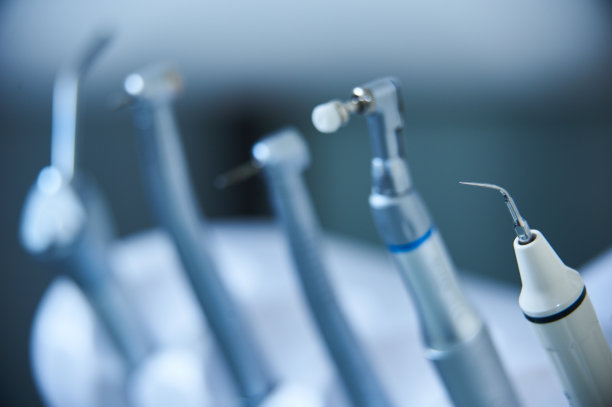Summary: This article focuses on the essential precautions to consider before and after dental filling procedures to promote optimal oral health and recovery. Dental fillings are often necessary treatments for cavities and damage, but proper care and considerations must be taken into account to ensure a smooth process and minimize complications. The article is divided into four vital sections: preparation for dental fillings, post-treatment care, dietary considerations, and recognizing signs of complications. Each section provides detailed insights and recommendations to help patients navigate their dental experiences effectively. By following these precautionary measures, patients can support their recovery and maintain a healthy oral environment.
1. Preparation for Dental Fillings

Before undergoing a dental filling, proper preparation is crucial for both the patients mindset and physical condition. The first step is to consult thoroughly with your dentist. Discuss any concerns you have about the procedure, potential pain, or aftercare. Understanding the process of filling and the type of material used can significantly ease anxiety.
In addition to addressing concerns, ensure you have a clear understanding of the appointment schedule. Organizing your visit in advance, including transportation arrangements, will help you focus on the procedure without unnecessary stress on the day itself. Being punctual and prepared creates a positive environment for the treatment.
Lastly, inform your dentist of any medications you are currently taking or medical conditions you may have. Certain medications and health issues can affect how you respond to anesthesia and the procedure itself. Being transparent about your health history helps your dentist tailor the best approach for you, enhancing the overall experience.
2. Post-Treatment Care Guidelines
After the dental filling is complete, the focus shifts to recovery and proper care. Following your dentists instructions is paramount; this may include recommendations on brushing and flossing techniques that accommodate the new filling. Gently cleaning the filling site helps prevent bacteria buildup while avoiding damage to the newly placed material.
A critical aspect of post-treatment care is monitoring for any discomfort or swelling. While mild soreness is expected, severe pain or swelling could indicate an issue requiring immediate attention. If symptoms persist or worsen, contacting your dentist promptly is essential to prevent complications.
Additionally, adhere to any prescribed medications or pain relief protocols. Over-the-counter pain relief can be effective, but consulting your dentist about the appropriate options is advisable. Following these steps ensures a smooth recovery and diminishes the risk of post-procedural complications.
3. Dietary Considerations for Recovery
Your diet immediately following a dental filling can significantly impact your recovery. Avoid hard, sticky, or chewy foods for at least 24 hours after the procedure. These types of foods can put undue stress on the filling and potentially cause it to dislodge.
Instead, opt for soft foods that are easy to chew and digest. Foods like yogurt, mashed potatoes, and soup can provide nourishment without risking the integrity of your filling. These gentle options will keep you satisfied while promoting healing.
Hydration is another essential consideration; however, be cautious with very hot or cold beverages, especially if you have a temporary filling. These extremes can cause sensitivity and discomfort. Moderating your intake temperature helps in maintaining the integrity and comfort of your dental work during recovery.
4. Recognizing Signs of Complications
Being vigilant about potential complications after a dental filling is vital for maintaining oral health. Patients should be aware of symptoms such as persistent pain, swelling, or unusual sensitivity that lasts longer than expected. These signs may indicate that something is wrong and should be brought to a dentist鈥檚 attention immediately.
Another consideration is the condition of the filling itself. If a filling feels loose or becomes dislodged, contacting your dentist for a follow-up is important. Compromised fillings can lead to further decay or infection, requiring additional treatment.
Lastly, regularly practicing good oral hygiene is essential to prevent future complications. This includes brushing twice a day and flossing daily, along with scheduling regular dental check-ups. Maintaining a consistent oral health routine can help safeguard your dental work and prevent further issues from arising.
Summary:
In conclusion, understanding the essential precautions before and after a dental filling can significantly enhance recovery and promote optimal oral health. From the preparation stage through post-treatment care and dietary considerations to recognizing complications, each step is critical in ensuring a successful recovery process. Embracing a proactive approach will aid in maintaining healthy teeth and gums in the long run.
This article is compiled by Vickong Dental and the content is for reference only.
Vickong Dental
Vickong Dental is a large medical group established in Hong Kong in 2008 by professors from well-known medical universities in Guangdong and Hong Kong, as well as medical doctors from key national '985' universities (including Master's supervisors and senior professors). The chain of branches brings together expert dentists with PhDs and Master's degrees from Hong Kong and Mainland China, committed to providing high-quality dental treatment.
"Vickong Dental Practices the University Motto of 'Healing and Serving Society,' with a Stable Operation for Sixteen Years. It Has Been honored with Hong Kong Enterprise Leaders's Choice,' and is a Global Trusted Implant Center for the Nobel Implant System. Recommended by Hong Kong Metro Broadcast and Guangdong Television, it Serves Customers from Over Thirty Countries and Regions, Gaining the Trust and Favor of Citizens from the Guangdong-Hong Kong-Macau Greater Bay Area and Surrounding Cities.

Thousands of customers' unanimous praise
The most recognized and highly recommended dental service by customers in the Guangdong-Hong Kong-Macau Greater Bay Area
We Ensure You Receive Detailed Care and Attention Here
Hong Kong standards, Shenzhen prices, Your Trusted English-speaking dentists

Vickong Dental Medical-Grade Instrument Disinfection Process
Vickong Dental Medical-Grade Instrument Disinfection Process

Vickong Dental Chain: A Warm and Comfortable Environment for Treatment






Appointment Hours

Q&A
Why choose Vickong Dental?
Vickong Dental practices the university motto 「Medicine to Benefit Society」, with each branch bringing together highly qualified dentists with doctoral and master’s degrees from Hong Kong and the Mainland, and has maintained seventeen years of steady operation。Recipient of 「2024 Hong Kong Enterprise Leaders Brand」, 「2025 Hong Kong Enterprise Leaders Brand」, a Nobel Biocare Global Trusted Implant Center, and a brand recommended by Metro Radio Hong Kong and Guangdong TV。
To date, we have served customers from more than thirty countries and regions,earning exceptionally high word-of-mouth recognition and trusted recommendations from residents across the Guangdong-Hong Kong-Macao Greater Bay Area and surrounding cities
We have eight major branches in Zhuhai、Shenzhen,and a consultation and service assurance center in Hong Kong,so you can book a free consultation at any time for any questions,which is very reassuring.
If I do not accept the quotation after the CT scan, will I be charged??
No! As long as the actual treatment has not started, you will not be charged any fees.
Will there be any additional charges during the treatment process?
No, there won’t be any additional charges. Before treatment begins, we will clearly explain the treatment plan and its corresponding fees. Only after the patient agrees and signs the consent form will we proceed with the dental service.
Can I pay in Hong Kong dollars?
Yes. Vickong Dental accepts payment in Hong Kong dollars. The amount will be converted based on the exchange rate of the day, and the applicable rate will be clearly communicated to you in advance.
Can I reschedule my appointment at any time?
Yes. Please contact us via **WeChat** or **WhatsApp** as early as possible, providing your original appointment time and details, along with your preferred new date and time slot for rescheduling.













